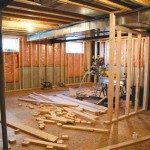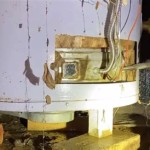What Insulation Should I Use For Basement Ceiling
When it comes to insulating your basement ceiling, there are a few different types of insulation that you can choose from. The best type of insulation for your basement ceiling will depend on a number of factors, including the climate you live in, the size of your basement, and your budget.
One of the most popular types of insulation for basement ceilings is fiberglass. Fiberglass insulation is made from tiny glass fibers that are held together by a resin. Fiberglass insulation is relatively inexpensive and easy to install, and it provides good insulation value. However, fiberglass insulation can be irritating to the skin and lungs, so it is important to wear a mask and gloves when installing it.
Another popular type of insulation for basement ceilings is cellulose. Cellulose insulation is made from recycled paper and wood fiber. Cellulose insulation is also relatively inexpensive and easy to install, and it provides good insulation value. However, cellulose insulation is not as fire-resistant as fiberglass insulation, so it is important to check with your local building code to see if it is approved for use in your area.
If you are looking for a more environmentally friendly option, you can choose to insulate your basement ceiling with spray foam insulation. Spray foam insulation is made from a polyurethane resin that is applied as a liquid and then expands to fill the space. Spray foam insulation provides excellent insulation value and is also fire-resistant. However, spray foam insulation is more expensive than other types of insulation, and it can be difficult to install yourself.
No matter what type of insulation you choose, it is important to make sure that it is installed correctly. Improperly installed insulation can lead to moisture problems and decreased insulation value.
Here are some additional tips for insulating your basement ceiling:
- Make sure that the insulation is thick enough. The R-value of the insulation is a measure of its resistance to heat flow. The higher the R-value, the better the insulation. For most basements, an R-value of at least 30 is recommended.
- Seal any air leaks. Air leaks can allow cold air to enter your basement and reduce the effectiveness of your insulation. Be sure to seal any cracks or gaps around windows, doors, and pipes.
- Insulate the rim joists. The rim joists are the wooden beams that run around the perimeter of your basement. These beams can be a major source of heat loss, so it is important to insulate them properly.
- Consider adding a vapor barrier. A vapor barrier can help to prevent moisture from entering your basement and causing damage to the insulation.
By following these tips, you can ensure that your basement ceiling is properly insulated and that you are getting the most benefit from your insulation investment.

Should I Insulate My Basement Ceiling And Walls Aire Serv

What Is Basement Ceiling Insulation And It Worth

Ceiling Insulation In Your Basement

What Are The Pros And Cons Of Basement Ceiling Insulation Upgradedhome Com

Best Insulation For Soundproofing Your Ceiling Renoviso

Basement Ceiling Insulation Interior Inspections Internachi Forum

How To Insulate Your Basement 2 10 Home Buyers Warranty

How To Soundproof A Basement Ceiling

Insulate A Basement Ceiling With Building Moxie As The Diy Guy

Basement Ceiling Insulation A Powerful Step By Guide
See Also








